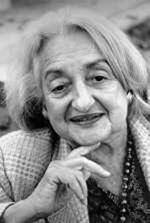Family: Motherhood
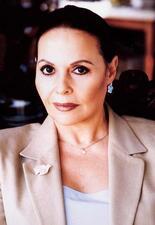
Gila Almagor
Israeli writer, actress, and filmmaker Gila Almagor’s acclaimed 1988 autobiographical film Summer of Aviya and its sequel Under the Domin Tree bought attention to post-Holocaust trauma and depression, which were often scorned by Israeli society. Almagor is also a founder of the Israeli Union of Performing Artists, the Tel Aviv International Film Festival, and the Gila Almagor Wishes Foundation.
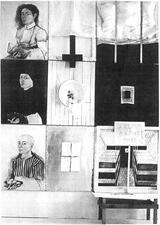
"Second Generation" Women Artists in Israel
Israeli women artists, second generation descendants of Holocaust survivors, have expressed in their art the grim atmosphere of absence, emptiness, and loss they absorbed. Their individual responses to the Holocaust differ in intensity and power.
Artists: Contemporary Anglo
In Britain, both feminism and feminist art took considerably longer to emerge and make their mark than in the United States, but when they did, many Jewish women artists created profound artistic work. British Jewish women artists generally hold both Jewishness and gender as central to their artistic output. Their art reveals the diverse ways in which women perceive their Jewishness in contemporary Britain.

Assimilation in the United States: Twentieth Century
Jewish women assimilating into a changing American society across the twentieth century navigated often conflicting gender roles. As they strove to achieve upward social mobility, they adapted Jewish assumptions of what women, especially married women, should do to accommodate American norms for middle class women. Their collective accomplishments registered in political activism, organizational creativity, strong support for feminism, religious innovation, and educational achievement in the face of antisemitism, stereotypes, and denigration.
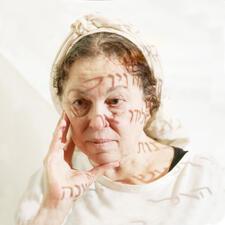
Helène Aylon
Helene Aylon was an American, New York-based, multimedia visual artist who began by creating process art in the 1970s, focused on anti-nuclear and eco-activist art by the 1980s, and subsequently devoted more than 35 years to the multi-partite installation The G-d Project. This last body of work’s often direct or indirect textuality resonates from and responds to Judaism’s traditionally male-dominated textuality as part of a larger commentary on women in Judaism.

Devorah Baron
Devorah Baron is one of the few Hebrew women prose writers in the first half of the twentieth century to gain critical acclaim in her lifetime. She wrote primarily about Jewish women’s lives, focusing on the challenges women faced in a society that did not value them equally. Her work was in dialogue with European writers, including Chekhov and Flaubert, and with Hebrew modernist writer S. Y. Agnon.
Sadi Muriel Baron
A pioneering neurologist and psychiatrist, Sadi Muriel Baron managed to interweave teaching, working with poor urban families, and running a successful private practice. Baron was also the mother of Dr. Renée Richards, who became one of the most famous American transgender personalities after her transition in 1976.

Barren Women in the Bible
The Hebrew Bible tells six stories of barren women: three of the four matriarchs (Sarah, Rebekah, and Rachel); the unnamed wife of Manoah/mother of Samson; Hannah, the mother of the prophet Samuel; and the Shunnamite woman, an acolyte of the prophet Elisha. Each woman suffers a period of infertility, in some cases exacerbated by the presence of a fertile, though less beloved, rival wife. Eventually, God intervenes and the woman conceives, but the beloved son is then dedicated back to God, either in service or in sacrifice.
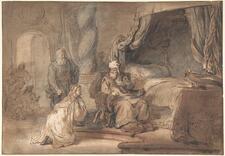
Bathsheba: Bible
Bathsheba is the married woman whom King David takes in adultery and who, though initially passive, becomes the pivotal figure in his downfall. The king has Bathsheba’s husband, Uriah, slain in battle and then takes her as a wife. While her first child, conceived in adultery, dies, the second, Solomon, becomes heir to the throne as a consequence of Bathsheba’s maneuverings.

Bathsheba: Midrash and Aggadah
As in the Bible, Bathsheba plays a secondary role in the midrashim about her husband, King David, and her son, King Solomon. The rabbis view her as a righteous, guiltless woman, both during David’s life and as an advisor to Solomon.

Gertrude Berg
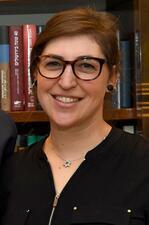
Mayim Bialik
Mayim Bialik is most famous for starring as the titular character in the early 1990s series Blossom and, in the 2010s, on Big Bang Theory as Amy Farrah-Fowler. She is also known for being one of the few observant Jewish actors in Hollywood and for holding a PhD in Neuroscience from UCLA.
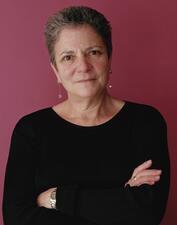
Gay Block
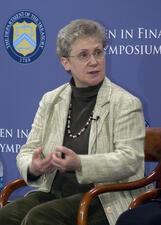
Abby Joseph Cohen
A leading voice in the United States investment banking and finance industry, Abby Joseph Cohen worked in the Goldman Sachs investment research division for over three decades. She rose to prominence in the 1990s with her accurate predictions of a prolonged economic expanding and durable bull market and has remained one of the top names in the investment industry.
Deborah 1: Midrash and Aggadah
Rebekah’s nurse Deborah died when Jacob was on his way to the Land of Canaan, close to Bethel, where she was buried under a tree. The rabbis describe her as having a close relationship to Jacob.
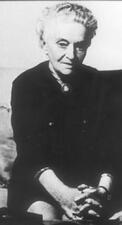
Helene Deutsch
Helene Deutsch was mentored by Sigmund Freud and was the first psychoanalyst to write a book on female psychology. In the 1920s she emerged as one of the most successful teachers in the history of psychoanalysis and in 1924 she became the first woman to head a psychoanalytic clinic.
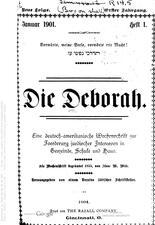
Die Deborah
Die Deborah was an influential American Jewish newspaper published in German from 1855 until 1902 specifically aimed at German-Jewish middle-class women. The paper’s writers and editors viewed women in high esteem as keepers of moral and spiritual values, and toward the turn of the century they came to support the values of the American feminist movement.
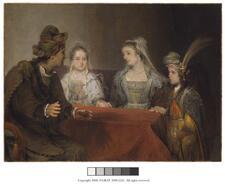
Edna: Apocrypha
In the Book of Tobit, Edna is Raguel’s wife, Sarah’s mother, and the mother-in-law of Tobias, Tobit’s son. Edna has no biblical namesake; unlike the other women named in Tobit, her name does not evoke images from the Hebrew Bible. Perhaps the author of Tobit means to recall Eden’s idyllic existence, or, more likely, to convey by the name something about the type of woman, wife, and mother Edna is.
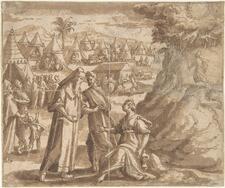
Elisheba: Bible
Elisheba was the wife of the high priest Aaron and the mother of their four sons, but she does not appear in any stories. Mention of her in the genealogy signifies the importance of women in the destiny of their children.
Equality, Religion and Gender in Israel
Although the principles of equality for women under the Declaration of Independence and the Women’s Equal Rights Law were not endowed with constitutional force, and the 1992 Basic Law: Human Dignity and Liberty does not expressly include the principle of equality, these laws have been interpreted by the courts as securing the principle of gender equality as a basic principle of the legal system.
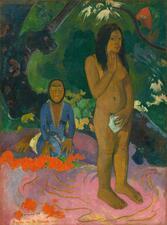
Eve: Midrash and Aggadah
Eve’s character is posited to be that of the original and quintessential woman. The Midrash interprets her traits as representative of the negative aspects of femininity. Eve’s punishment for her sin is also tied to the traditional ideas of the fundamentals of womanhood – childbirth, pregnancy, and male spousal domination.
Family During the Holocaust
Although Jewish family life was destroyed and restructured in many ways during the Holocaust, it still often provided strength and a sense of normalcy. In many cases women became the family’s main income earner and were charged with many new tasks and responsibilities. Families were also frequently broken up by deportation, escape abroad, and death.
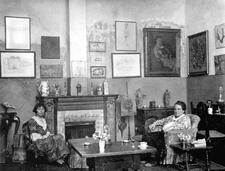
Fiction in the United States
Literature by American Jewish women reflects historical trends in American Jewish life and indicates the changing issues facing writers who worked to position themselves as Americans, Jews, and women.
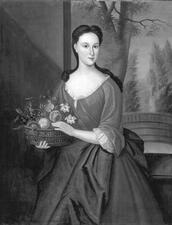
Bilhah Abigail Levy Franks
